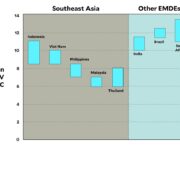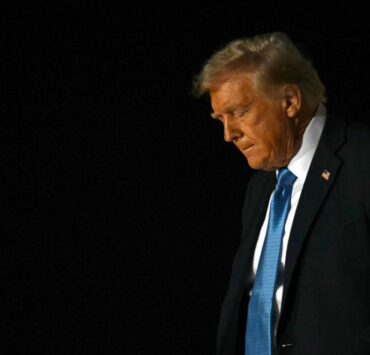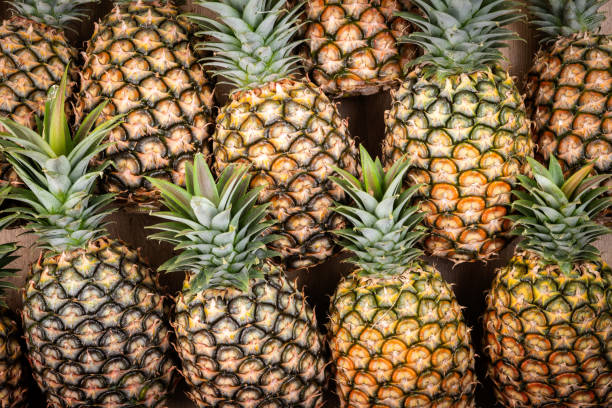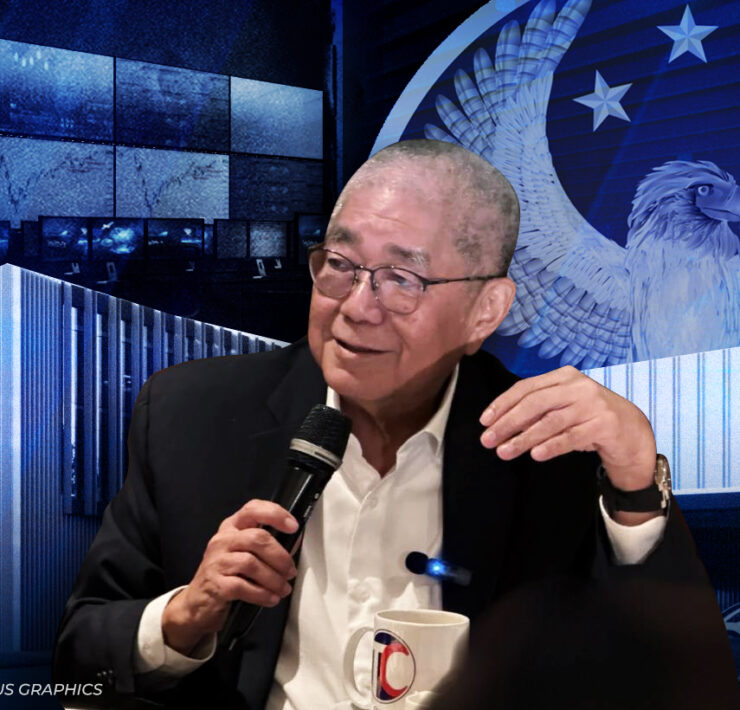Secret Ingredient: Innovative funding for Pinay-led drama awes Cannes

Imagine creating a drama series for an international audience—with an all-star cast and content at par with K-drama blockbusters—without worrying about the expenses, as the tab will be picked up by consumer brands that are adroitly woven into the storyline.
Filipina filmmaker Corinna Vistan, formerly based in Hollywood as a content producer at Marvel, did just that and more when she created the 2024 TV miniseries “Secret Ingredient,” a landmark partnership between Hong Kong-based streaming platform Viu and consumer giant Unilever.
Cannes Corporate Media & TV Awards (and later on Asian Academy Awards) feted this project as it became a shining example of how filmmakers and marketers can come together to craft stories that both enhance the narrative and align with brand values, without feeling forced or out of place.
Aside from the series winning “Best Branded Content” and “Best Ensemble Cast,” Cannes summoned Vistan in September last year to deliver a lecture on the innovative funding structure of Secret Ingredient.
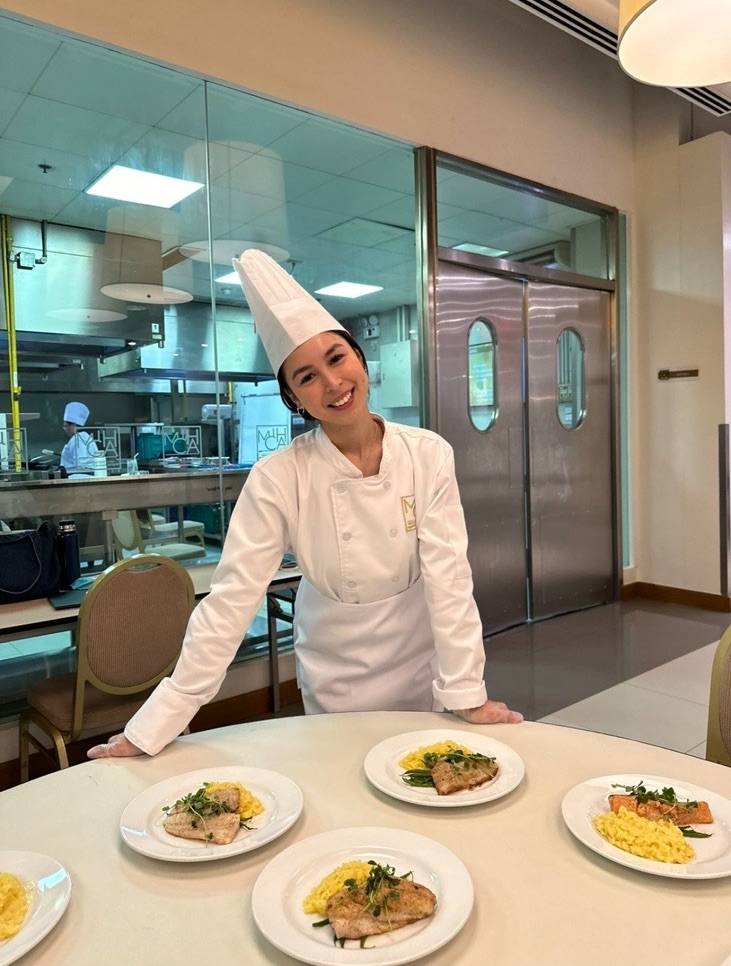
The six-part miniseries tells a love story between a South Korean chaebol heir Ha Joon, played by Sang Heon Lee (star of Gran Turismo and XO, Kitty), and Maya, a talented Filipina chef played by Julia Barreto, a subordinate of famous Indonesian chef Arif, played by Nicholas Saputra.
Ha Joon gives up his entire luxurious life in Seoul to pursue Maya, a childhood friend he had lost touch with but who no longer recognizes him in present day.
As many of the scenes are set in the kitchen of Chef Arif’s restaurant in Jakarta, the series involves a lot of cooking and is thus able to imbed Unilever products.
“Traditional models of financing are changing, and brands are stepping up as key partners in the development of new media,” says Vistan, sharing with Sunday Biz excerpts from the lecture.
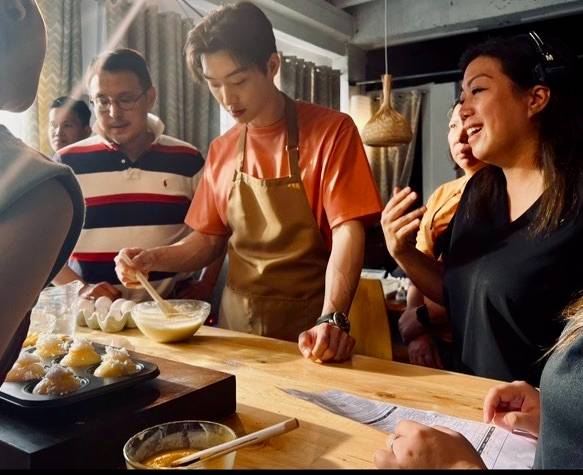
“The rise of streaming services, changes in advertising consumption and the explosion of branded content have opened new opportunities for brands to become direct financiers of creative projects,” she says. “This makes filmmakers an attractive partner for brands wanting to reach audiences in a more engaging, organic way.”
Brands now understand that viewers are skipping ads or avoiding them altogether, especially with the proliferation of on-demand content, she adds.
“It was a monumental project for Viu in partnership with Unilever because it was the first case study we’ve done that showcased how content can marry branded integration as long as you have great storytelling at its core,” Viu Philippines head of content Garlic Garcia says in an email interview.
“This major international recognition from Cannes affirms the success of this groundbreaking brand collaboration between Viu and Unilever, that reinforces how you can always find a way for a brand to shine without letting it disrupt the viewer experience and this is what we want to show to potential brands that are looking for alternative ways to promote their products and services,” Garcia adds.
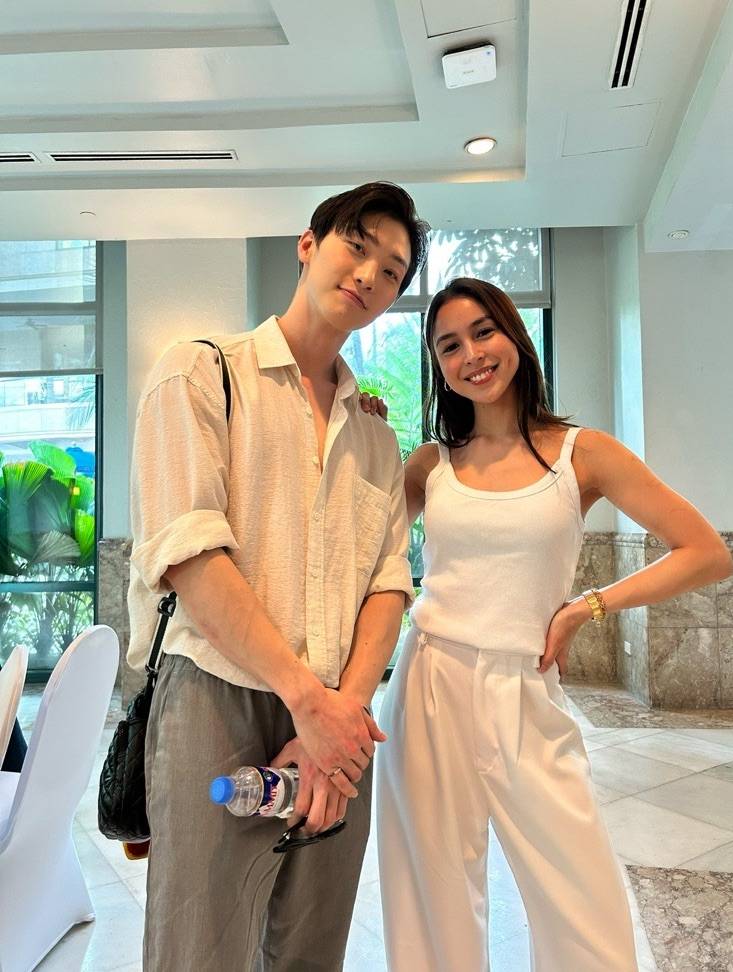
Garcia says one success factor here is that the show highlights the best of the Philippines and Indonesia, two of the most populous countries in the region. “We tapped A-list celebrities that were homegrown to add to the star factor of the show,” she notes.
Saputra, for instance, is said to be Indonesia’s version of Piolo Pascual.
“Second, we capitalized on the K-wave influence and tapped a South Korean director and writer to helm the show with breakout star Sang Heon Lee also to lead it,” she adds.
What makes it work
Subtle advertising in films or TV series isn’t really something new. Think Mattel’s Barbie film (2023). Closer to home, tycoon Henry “Big Boy” Sy Jr. produced in 2011 the comedy flick “Who’s that girl?” starring Anne Curtis as a way to advertise residential condominium developer SM Development Corp. Other brands were likewise showcased in the movie.
But Secret Ingredient is the first time that a fast-moving consumer goods company like Unilever came in to support an entire series to imbed multiple brands in a multinational production led by a Filipino showrunner.
It opens the doors for creators to bring their visions to life without relying solely on studios, networks, or streaming platforms.
But how can marketers, filmmakers or storytellers seamlessly integrate brands into these narratives without interrupting the flow, disrupting authenticity, or most importantly, alienating the audience?
Vistan shares a few tips:
1. Start with the story: The narrative comes first. Always.
It all begins with a concept: what the movie will be about that the creator can pitch to financiers.
Secret Ingredient is about childhood friends who found each other through food and became hotel chefs as adults.
“So when you see them cook using the (Unilever) products, hindi pilit (it isn’t something forced into you),” says Vistan.
2. Know your audience: Understand what resonates with them emotionally and align the brand with those elements.
Here, the main target demographic base is that segment of women, including mothers, who love K-dramas. But it has to come with a Southeast Asian element. The story takes place in Jakarta, Indonesia, and Manila, but everything was filmed in Manila. Ayala Tower 2 was used as the shooting location for the fictional chaebol office.
“The pull is the Korean element; that’s the anchor,” Vistan says.
3. Subtle but visible: Strike a balance between making the brand noticeable but not intrusive.
“In striking a balance between subtlety and visibility, and ensuring the brand enhances rather than detracts from the story, we can create compelling, immersive content that resonates with viewers while serving the brand’s objectives,” Vistan says.
“Storytelling is about connection—between the creator and the audience, between characters and their world.”
As a partner, Unilever gave Vistan’s team the freedom to execute their creative vision.
“They trusted us, gave us creative freedom, and just said we have to work with a Korean writer and director,” Vistan recalls.
The team would send the script to Unilever but only offered their inputs when their brands appeared.
4. Create a world where the brand belongs: The brand should feel like a natural part of the environment, characters and plot.
“Unilever had recipes they wanted to highlight. The goal was to show those recipes so when viewer watches it, they will get hungry and want to cook,” Vistan says.
Vistan’s team worked with six Unilever brands , including two that are known in the Philippines: Lady’s Choice and Knorr (four are Indonesian brands).
“At the time the show went out, sales went up for those types of products,” she says.
In the Philippines, the show ranked No. 1 on Viu’s platform on its fifth and sixth week, and also topped the ranking in Indonesia.
Once the partnership was finalized, shooting began in January last year. By May, the series started streaming.

